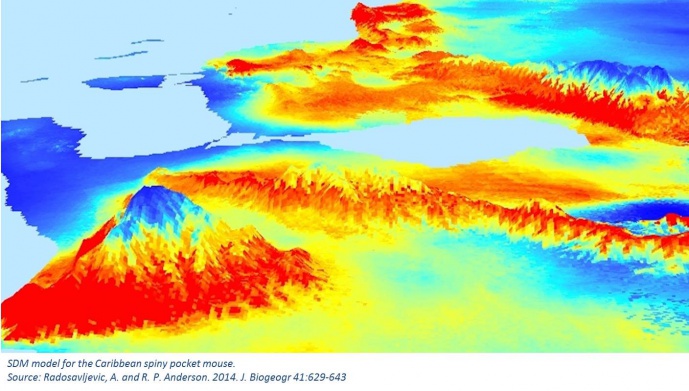4th EDITION OF SPECIES DISTRIBUTIONS MODELLING COURSE

Coming up soon the 4th edition of the “Species distributions models: concepts, methods, applications, and challenges”, which introduces the fundamental concepts underpinning ecological niche models (ENM), while describing some of the most prominent methods currently in use, and discussing the strengths and limitations of these models for different applications. The course jointly organised by Science Retreats and the InBIO-CIBIO at the University of Évora gives equal weight to theory and application. During one day the students will analyse their data and prepare a small report for discussion in the class.
Course Objectives
In the end of the course, our aim is that students will be equipped to:
1. Understand the theoretical underpinnings of ecological niche models
2. Understand the strengths and limitations of ecological niche models in the context of different uses
3. Be able to correctly design an ecological niche modelling study for a variety of uses
4. Get started with ecological niche modelling using SDM R.
Requirements
Some experience in the computer language R is desirable, and experience with GIS is helpful. All participants must bring their own personal laptop.
Fees and cancelation policy
20% discounts on the registration fee are available to students and researchers from InBIO-CIBIO and to students from the University of Évora (contact us by email to obtain the promotional code). When paying through a non-Portuguese EU institution you will be exempt of VAT (value added tax) if you provide the adequate VAT tax code. If you come from outside the EU you are also exempt of VAT. Should you prefer paying the registration fee via wire transfer let us know and we’ll provide you with the necessary information.
If you wish to cancel your participation in this course, cancellations up to 20 days before the course start date will incur a 30% cancellation fee. For later cancellations, or non-attendance, the full course fee will be charged. In the unlikely event that the course is cancelled due to unforeseen circumstances, accepted candidates will either be entitled to a full refund of the course fee, or the fee can be credited toward a future course. The organisation is not responsible for travel costs, or any other expenses incurred by the candidate as a result of such cancellation. Every effort will be made to avoid the cancellation of the planned course.
Participation
The course accepts a minimum of 10 students and maximum of 30 students.
Course Tutors
Miguel Araújo is a Research Professor of the Spanish National Research Council (CSIC) and visiting Professor at the Universities of Évora and Copenhagen. Previously, he held faculty or research positions at the Imperial College London, the University of Oxford, the CNRS, and the Natural History Museum in London. He was recently elected Editor-in-Chief of Ecography. Miguel Araújo has a wide range of interests in biogeography, conservation planning, global change biology, and macroecology. Earlier work included the development of reserve-selection techniques that minimise species extinctions within reserves. More recently, a variety of types of species distributions models have been used to investigate impacts of climate change on species distributions. The goal is to better understand the sources of uncertainty in models and to propose alternative approaches to reduce them. He was lead author for section on the biodiversity and climate change in Europe in the Fourth Assessment Report of the Intergovernmental Panel on Climate Change (IPCC) for which the IPCC shared the Nobel Peace Prize. Miguel Araújo is a highly cited author (2015, 2014) and recipient of the King James I Prize (2016) and the Royal Society Wolfson Research Merit Award (2014). He also received the IBS (International Biogeography Society) MacArthur & Wilson Award (2013), given to an individual ‘for notable, innovative contributions to biogeography at an early stage in their career’, and the GIBIF (Global Information Biodiversity Facility) 2013 Ebbe Nielsen Prize awarded to researchers that “combine biosystematics and biodiversity informatics in an exciting and novel way”.
Babak Naimi is a Research Associate at the University of Copenhagen’s Natural History Museum of Denmark within the Centre for Macroecology, Evolution and Climate. His research interests revolve around spatiotemporal statistics, environmental modelling, and the interface between geo-informatics and biogeography. He is currently working on developing new methods for species distribution modelling under climate change and land use change scenarios to improve their ability for understanding ecological processes associated with the patterns in species distributions as well as to deal with the challenges in the methods.
More information and registrations are available here.